Live streaming from the Bayreuth Festival, July 25, 2025.
It's been eight years since I launched my blog, and as every year, I try to celebrate it by watching and commenting the opening night of the Bayreuth Festival, followed via streaming. I always maintain this: in a gesture of generosity, the Festival, the German Television, Deutsche Grammophon, and Bavarian Radio allow millions of Wagnerians and opera lovers around the world to experience the magic of the Festival live and built their own opinion. In addition, since last year, it's not the same for me, because I finally had the privilege of attending a performance of Tannhäuser at the Festspielhaus that 2024. This year's edition open with a new production of Die Meistersinger von Nürnberg, the only comedy in the Bayreuth canon, and the most "German" of the maestro's operas. Also the most misunderstood and misused, if possible, due to the nationalism that permeates this entertaining work about a singing competition among the city's most prominent members. This work hasn't been seen at the Festspielhaus since 2021, back then being the last time for the Barrie Kosky's now classic and fabulous staging. By setting the work first in Wahnfried, the composer's home, and then in the 1946 Nuremberg Trial, he successfully appealed to the festival's dark anti-Semitic past, which was one of the cultural icons of Nazism.
Now, this masterpiece returns in a new production by German playwright Matthias Davids, who has succeeded in the musical world.
Alongside him, Daniele Gatti returns to Bayreuth, after his legendary Parsifal with Stefan Herheim between 2008 and 2011, and this marks the debut of Thomas Eitler-de-Lint as the chorus master, whose appointment was announced last year, replacing the veteran Eberhard Friedrich.
Barrie Kosky has set the bar so high with his former production of this opera that it was already difficult to forget it.
And I am not very sure if the new current production has achieved it. Davids modernizes the work in terms of aesthetics and scenery, but it doesn't seem very delving into this work's inner aspects, but rather seems to be seeking its most entertaining aspect, so the audience could simply enjoy an opera evening, something he has undoubtedly achieved. Throughout the production, there are nods to the musical, which become completely evident in the grand finale.
At first, I genuinely thought this production was a nod to Kosky's. As the curtain rises, a staircase leads to a tiny church, while in one corner, street musicians are playing, with Stolzing cheering them on. From the church, on one side of the railing, emerge a group of people dressed in clothes from different eras, and on the other side, all alone, a stereotypical Jew helps Magdalene pick up the things Eva left behind. The stage turns at the end of the first scene of the first act, revealing a set reminiscent of the Festspielhaus itself. Beckmesser disapproves of Stolzing's song with enormous curtains on which the word "No" is repeated in German in large letters.
The second act shows a huge wooden structure that is supposed to be the facades of buildings, surrounded by colorful trees and a kind of telephone booth filled with books. Beckmesser plays a lute consisting only of strings and the edges of the box in the shape of a heart. The third act, unlike the first, has a staged overture. As the beautiful string prelude is played, Sachs walks around his workshop and at one point looks at a black-and-white portrait of a woman and a girl, presumably his lost wife and daughter.
The big visual impact comes with the grand finale, called the Festwiese in German. A blue sky with clouds appears, and an inflatable structure appears on stage, in which a huge pink cow stands. The choir dances, and the teachers enter dressed in white costumes. Eva, the prize, appears behind a huge floral crinoline. Beckmesser doesn't disappear from the scene when his trap is discovered. In the end, Eva and Stolzing refuse the prize, she gives the master's medal to her father, and finally leave the place. Meanwhile, Sachs and Beckmesser fight over the prize song, while everyone else shrugs.
Conducting the Bayreuth Festival Orchestra, Gatti delivered an enjoyable performance, with moments of symphonic majesty and others that were more intimate, but without losing any trace of freshness, resulting in an entertaining performance. The Choir performed well, although the reduction due to budgetary reasons is noticeable. Nevertheless, they deserve credit for singing as well as possible to the rhythm of the choreography throughout the entire work. They were spectacular in the "Wach Auf" chorus from the finale and in the two final phrases that close the work.
The tenor Michael Spyres undoubtedly leads the cast with his excellent Stolzing, sung beautifully, with a dark but youthful tone. This baritenor doesn't forget his bel canto origins, as at the end of "Fanget an" he closes the piece with a hint of coloratura, lending a special touch to the lyricism inherent in the role. And in all his scenes, he has been superb.
Georg Zeppenfeld , who has sung darker roles at Bayreuth, is a light and sensitive Sachs, in his voice more a man of delicacy than authoritarian and imposing.
Jongmin Park is an excellent Pogner, with a beautiful low register and notes, and a powerful voice. I wish this Korean bass to sing more roles in Bayreuth, where he is destined to make history.
Michael Nagy is a well-sung and acted Beckmesser, although he misses a bit of bass, but he fits with the vision of the staging.
The Swedish soprano Christina Nilsson (who shares the same name as her legendary 19th-century compatriot) is a wonderful Eva: she sings well and has a voice that sounds lyrical and youthful.
Matthias Stier gives a well-sung David, with a more lyrical tone than a prototypical character tenor one.
Christa Mayer is a well sung Magdalene, with a slightly matronly tone. Tobias Kehrer is an excellent Nightwatchman, and Jordan Shanahan is a decent Kothner.
There were few boos at the end of the performance, so the staging must have pleased many people in the audience. Overall, it was an acceptable staging (it's hard to forget Kosky's version) and a notable musical performance. Let's see if at least this last aspect improves in future editions.
My reviews are not professional and express only my opinions. As a non English native speaker I apologise for any mistake.
Most of the photographs are from the internet and belong to its authors. My use of them is only cultural. If someone is uncomfortable with their use, just notify it to me.
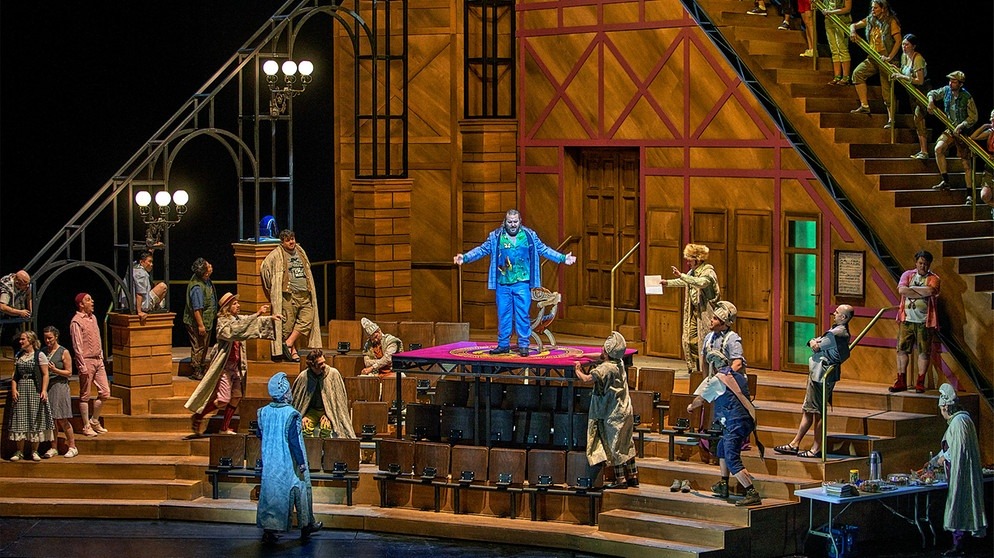
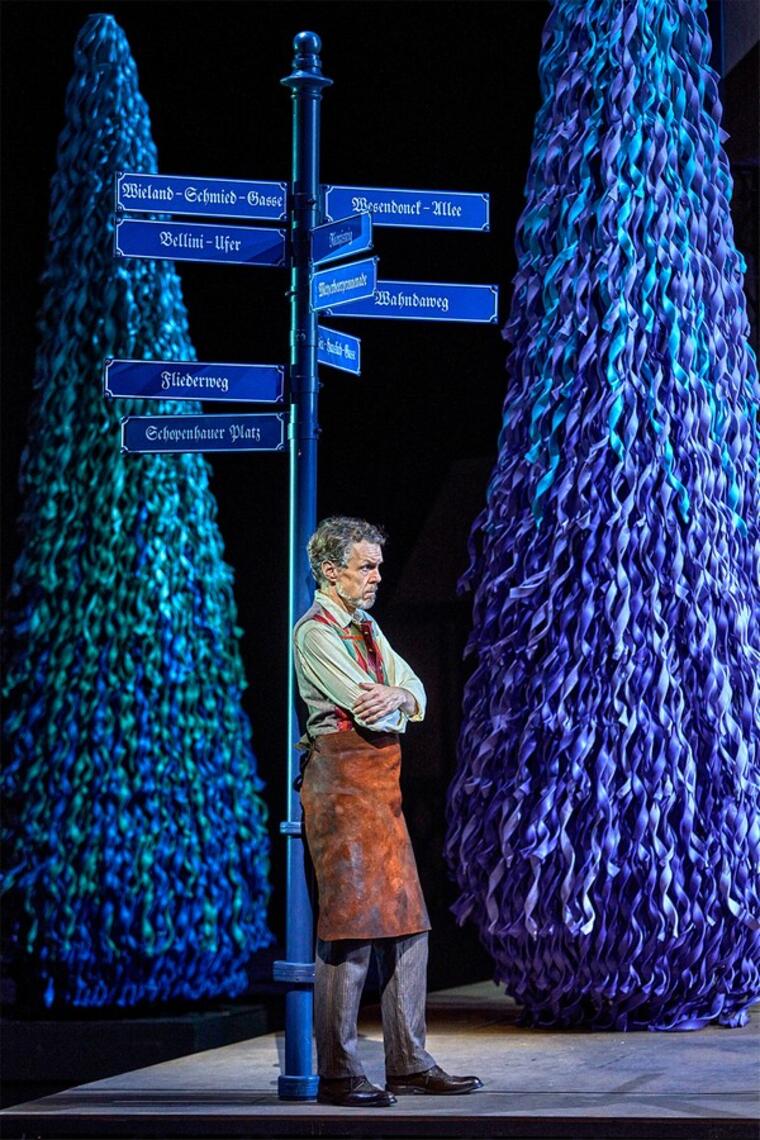
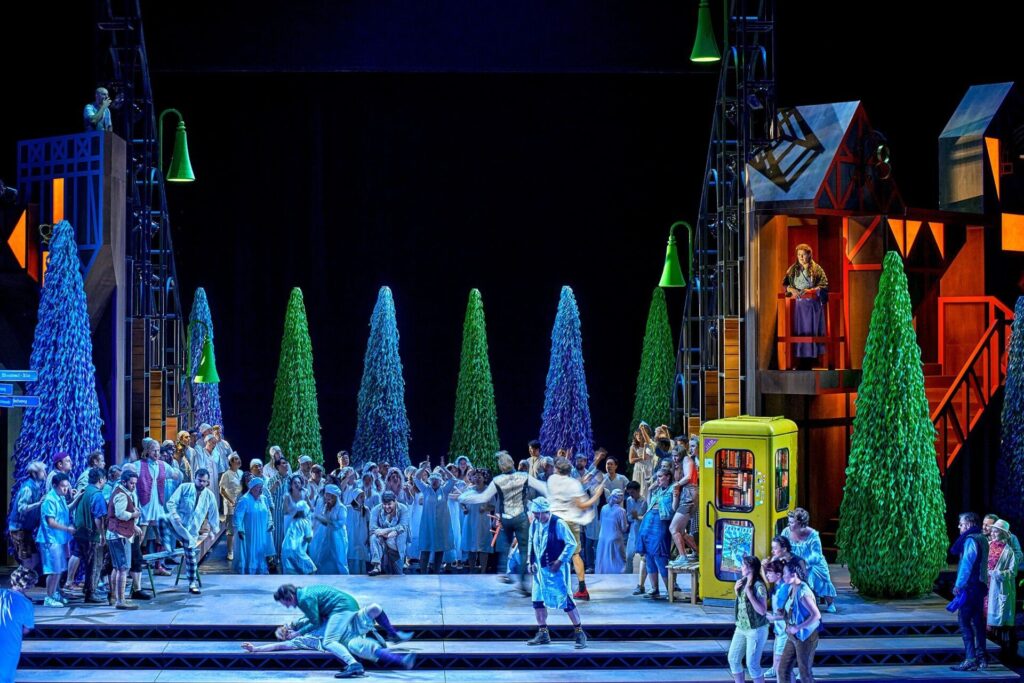
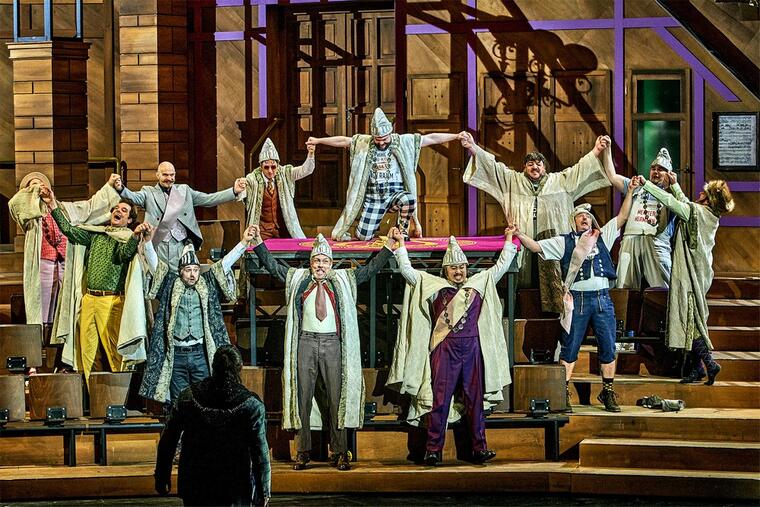
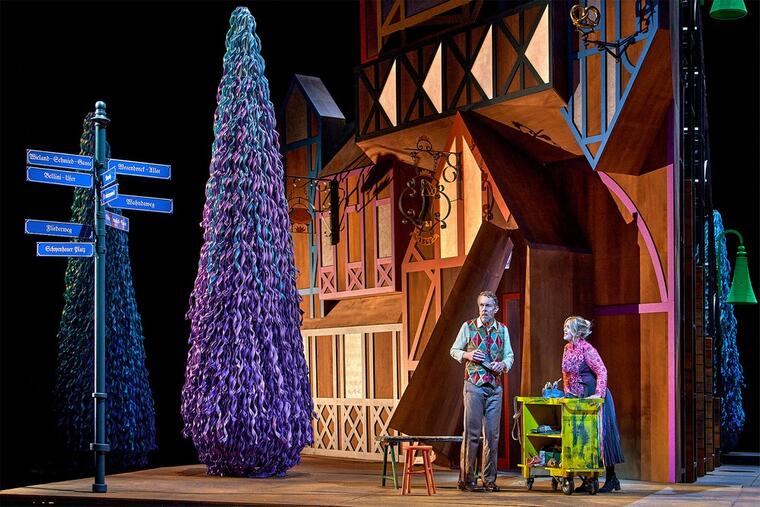
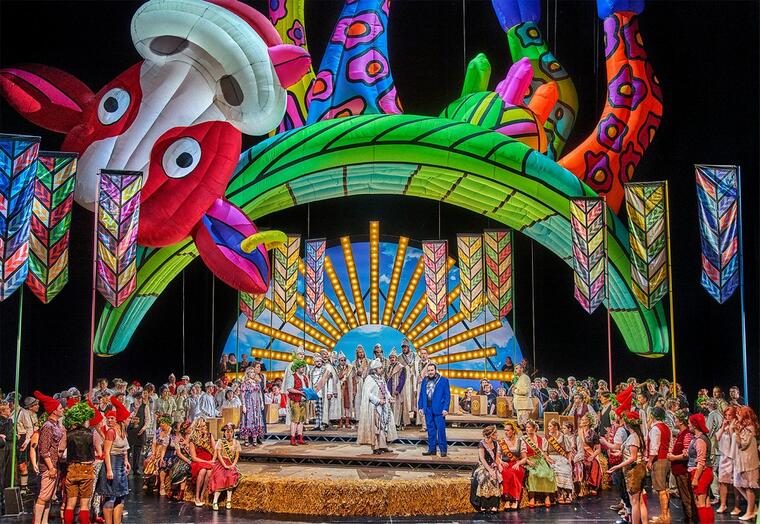
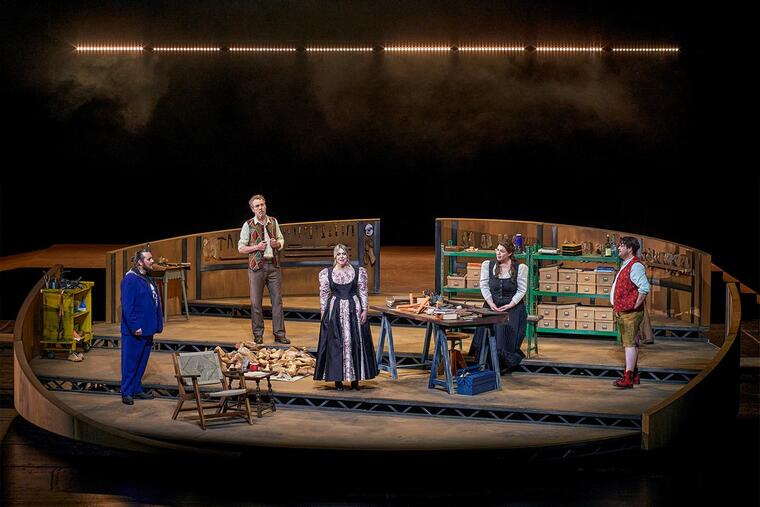



No hay comentarios:
Publicar un comentario